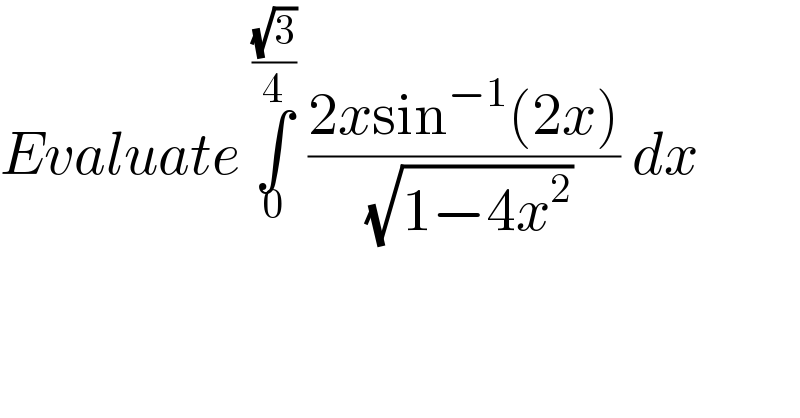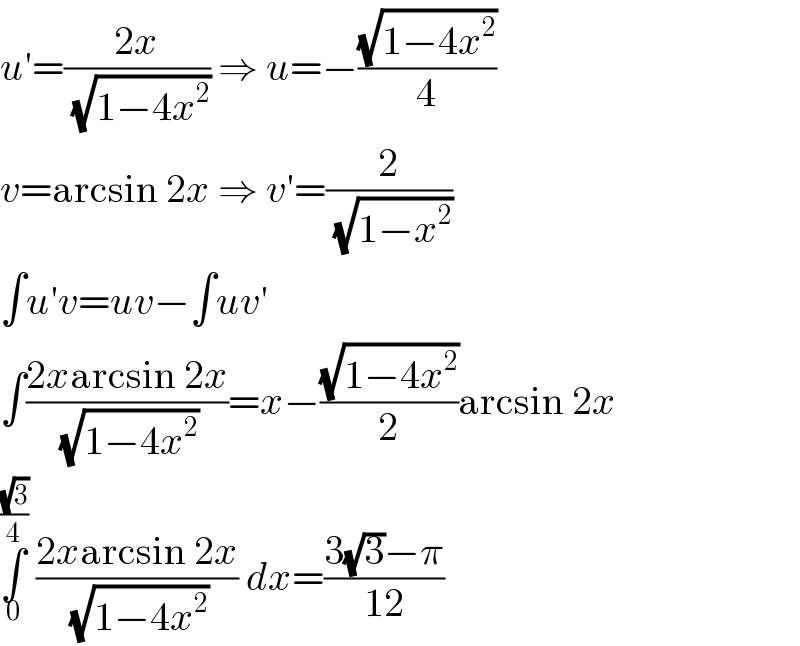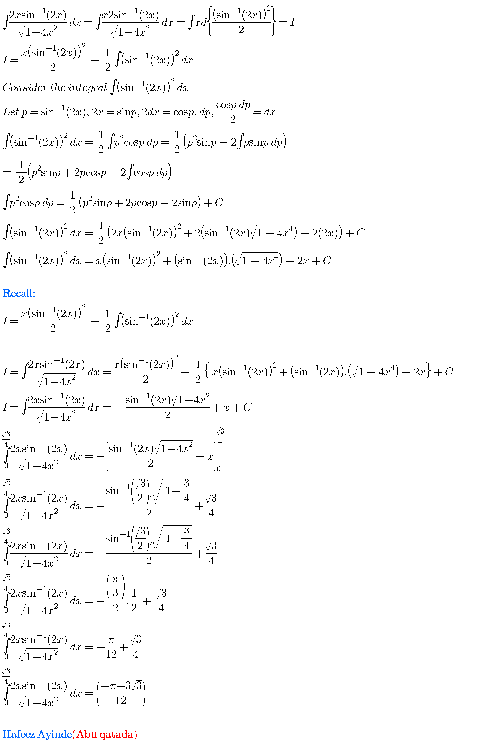
Question and Answers Forum
Question Number 48955 by Abdulhafeez Abu qatada last updated on 30/Nov/18

Answered by tanmay.chaudhury50@gmail.com last updated on 30/Nov/18
![2x=sinθ 2dx=cosθdθ ∫_0 ^(π/3) ((sinθ×θ)/(√(1−sin^2 θ)))×((cosθdθ)/2) (1/2)∫_0 ^(π/3) θsinθdθ I=∫θsinθdθ =θ∫sinθdθ−∫[(dθ/dθ)∫sinθdθ] dθ =−θcosθ−∫−cosθdθ =−θcosθ+sinθ+c so required intregal is (1/2)∣−θcosθ+sinθ∣_0 ^(π/3) =(1/2)[(−(π/3)×(1/2)+((√3)/2))] =((−π)/(12))+((√3)/4)](Q48961.png)
Answered by MJS last updated on 30/Nov/18

Answered by Abdulhafeez Abu qatada last updated on 02/Dec/18

